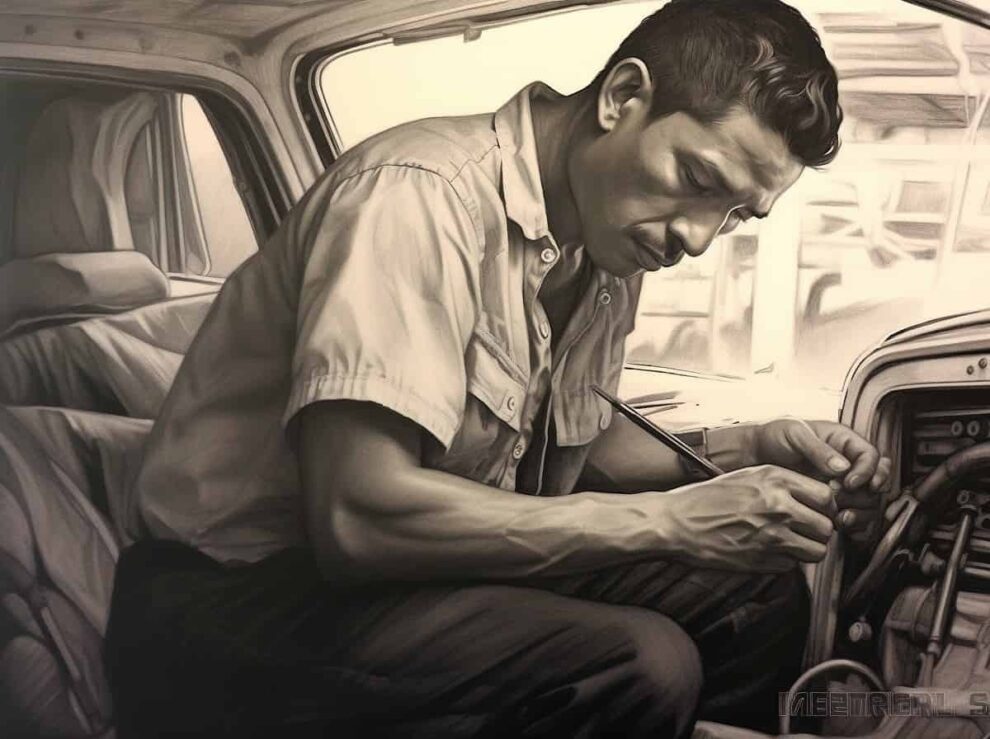Tourist information typically describes Costa Ricans with good vibe adjectives like warm, friendly, welcoming, and generous. I have a thousand personal stories of confirmation.
Here is one: We had lived several months caretaking a remote farm.
We had two kids under the age of 2, born in Costa Rica on US passports. We were leaving the country for a year. The many arms of the bureaucracy stood between us and departure. This was a long time ago, pre-cell phone, pre-doing anything online. No lawyer.
Paperwork purgatory. The days when every government office was loud with the sounds of typewriters pecking and documents being stamped, and you would take a tab, number 96 and look up and see they were at number 34. Everyone waited patiently.
I had finally gotten everything legal for the children to leave with us. My last stop before heading over the mountain to the Zona Sur was a Periferico’s supermarket right on the old highway that connected Escazu to San Jose.
There was a tight, narrow parking area right off the road- cars whizzed by a few feet away. Here my car died. As I stood, hood open, gaping into the engine, a car slowed and stopped, blocking a lane of traffic.
The driver, was around 50, bore a resemblance to Ruben Blades, the salsa singer. He got out of his car. I was watching the road. Cars were having to slow, swerve, stop. Horns were honking. The man said he was a car mechanic and offered his help. He had a shop nearby.
The man then went to his car, pulled out a towing rope. By now traffic was merging in the one open lane and horns were still honking. We got my car hooked to his and I followed him to his house. He lived in lower Escazu–the area below the town park, with his wife and stepson.
He did not have a garage or workshop–the work area was the small front yard –but he had enough tools and knew what he was doing. My car was fixed in 2 days.
I slept on the couch and we met up with a couple of his friends and went drinking in Escazu town bars at night. I could not pay him until the next week, but he trusted me, gave me the keys and even led me on a shortcut out of Escazu to get me going on the road south.
I had been stuck in a cramped parking lot with a dead car; 72 hours later I was on my home, and had made a new friend. The next week we were flying to the US. We took the bus to San Jose and got a small room in a hotel near Escazu.
I went to the mechanic’s house to pay him and he invited me for some going away drinks with friends in town. The Costa Rican national team–the Sele–was playing Mexico in a World Cup qualifier. We were invited to sit at a table with some friends.
One guy was buying rounds. He looked a bit older than the rest–and a bit better off. My friend introduced us, and within minutes of conversation, my family was invited to leave our small hotel room and stay with his family, in his house. Mi casa es tu casa, he told me. After the game we all went to his house.
It was twice the size of the others on the block. Inside, a family consisting of his wife, 4 young adult kids, three of whom worked during the week. As is common here, all still lived at home.
One of the sons drove me to the nearby hotel where I explained the situation to my skeptical wife. We rounded up our suitcases and our two young children, and were driven back to the house. On arrival, the man showed us the master bedroom, where he and his wife slept.
We spent the next three days and nights as guests in this house, in the best bedroom, of a man I had known for less than an hour. I went on to the states for a year plus, then returned to Costa Rica.
I went back to Escazu to check on my old friends, but the mechanic was no longer living with his girlfriend and had gone to Limon for work. The family that took us in had sold the house and the new occupants did not know where they had gone. All that was left was permanent confirmation that all those good vibe adjectives are based on reality.
Source : Ticotimes






























